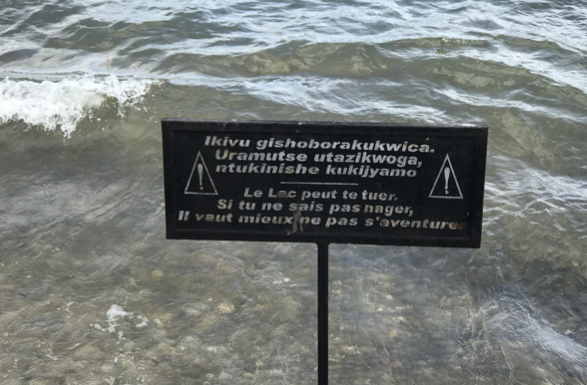Embracing Language: Rwanda Adapts to Globalization

By Carol Yuan and Han Xu
Greeting local farmers in Kinyarwanda; introducing attractions to tourists in English and French; using Swahili to communicate with traders from Congo. These are daily occurrences for Olivier Rutagengwa, 24, a tour guide from Rwanda.
“It is pretty common for people who’ve got higher education to speak multiple languages in Rwanda,” said Mr. Rutagengwa, who can speak four languages and looks forward to learning more.
Rwanda became a sovereign country in 1962 with the end of Belgian rule, but the French language remained. Now it’s one of the four official languages of Rwanda along with English, Kinyarwanda and Swahili.
But in 2008, Rwanda switched its education system from French to English, in a nation-wide shift towards the English-speaking world.
Officially, the move was to strengthen ties with neighboring countries including Uganda, Kenya and Tanzania, which use English as their official language. But others say resentment over colonial rule plays a part too.
“The government kind of blames France for letting the genocide happen, so I think that’s the real reason why they changed the language, to cut off the connection with France,” said Sylvia Mutesi, a tour guide from Rwanda.
She added that students had to learn to take exams in English, which was challenging.
But French seems to be back in Rwanda, with the country’s Minister of Foreign Affairs, Louise Mushikiwabo, being appointed head of the International Francophone Organisation last year.
“Even though the language switched to English, French is still more popular among the people,” said Brice Hirwa, a designer at The New Times, the most popular English newspaper in Rwanda. “People can’t change their language habits in one or two days.”
If one wants to have more working opportunities in Rwanda, knowing French is a must, Ms. Mutesi said.
Viviane Irabizi, 21 and an intern at The New Times, said people nowadays are more open-minded.
“We live in an era of globalization. The more languages you can speak the better. For me, I can speak English, French and Kinyarwanda, now I want to learn Chinese the most,” said Ms. Irabizi.
With the increase of Chinese investment in Rwanda, more young people might shift toward learning Chinese.
Jean Maniriho, a third-grade elementary school student, said that he would love to learn Chinese and wants to study in China when he grows up.
“Chinese helped build roads in Rwanda. They hired my brother,” Jean said.
